- Joined
- May 25, 2006
- Messages
- 7,034
- Reaction score
- 1,875
These were originally from this Boston Globe piece. I'm just posting a few interesting ones.
My fav:
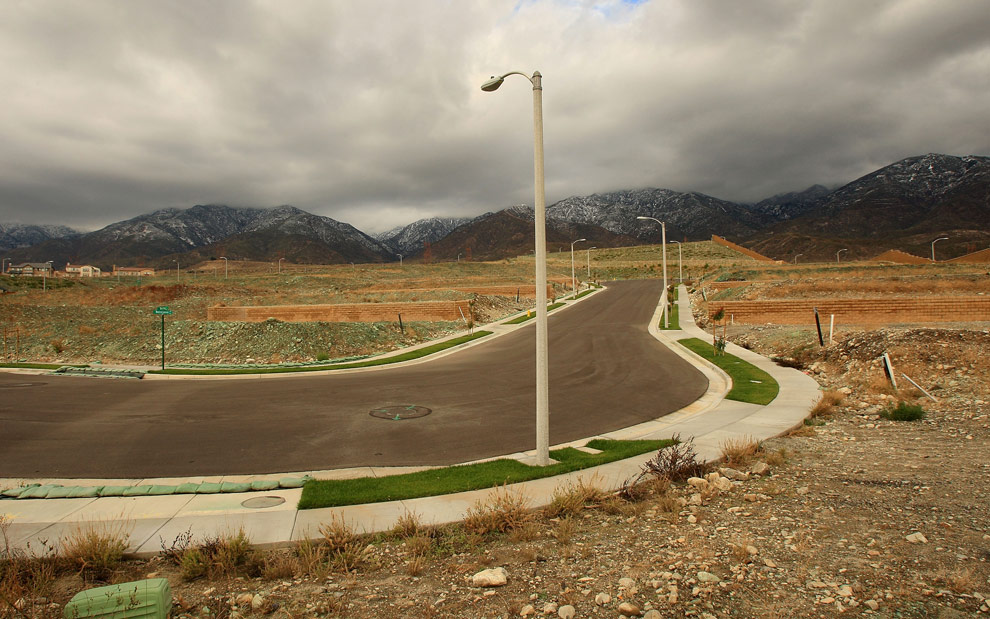
Storm clouds hover near unfinished home lots during a break between storms after the dwindling new home sales market brought construction to a halt at a new home development December 16, 2008 in Rancho Cucamonga, California. Home construction took its biggest dive in 24 years in November to reach a record low. (David McNew/Getty Images)
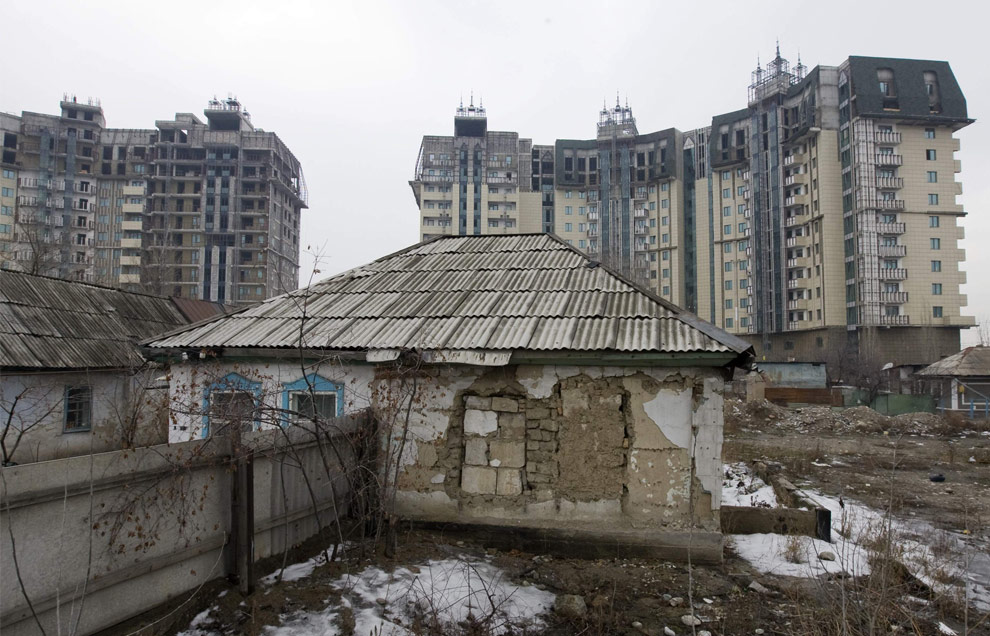
A stopped construction site is seen behind an older two-family house occupied by only one family in Almaty, Kazakhstan on March 4, 2009. (REUTERS/Shamil Zhumatov)
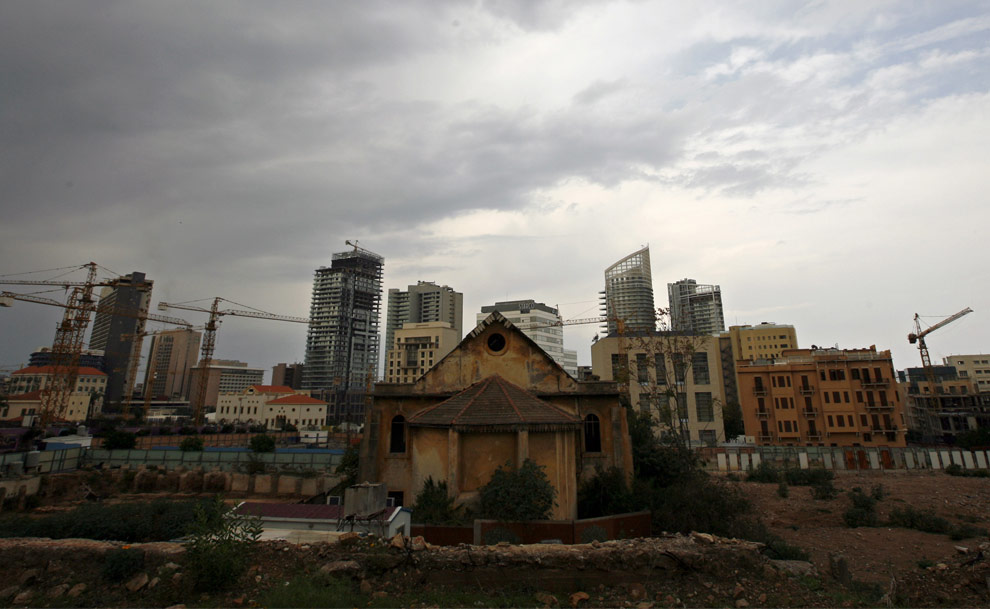
The Magen Abraham Synagogue sits at center of this photograph taken on Wednesday, Nov. 12, 2008, surrounded by the gleaming new skyscrapers in Wadi Abou Jmil, Lebanon - formerly Beirut's main Jewish neighborhood. One of Lebanon's sole remaining synagogues, this building was set for a restoration that has the rare blessing of all the factions in this divided country - but the global financial crisis has scuttled the effort for now, leaving the Magen Abraham chained, padlocked, badly damaged and overgrown with weeds. (AP Photo/Grace Kassab)
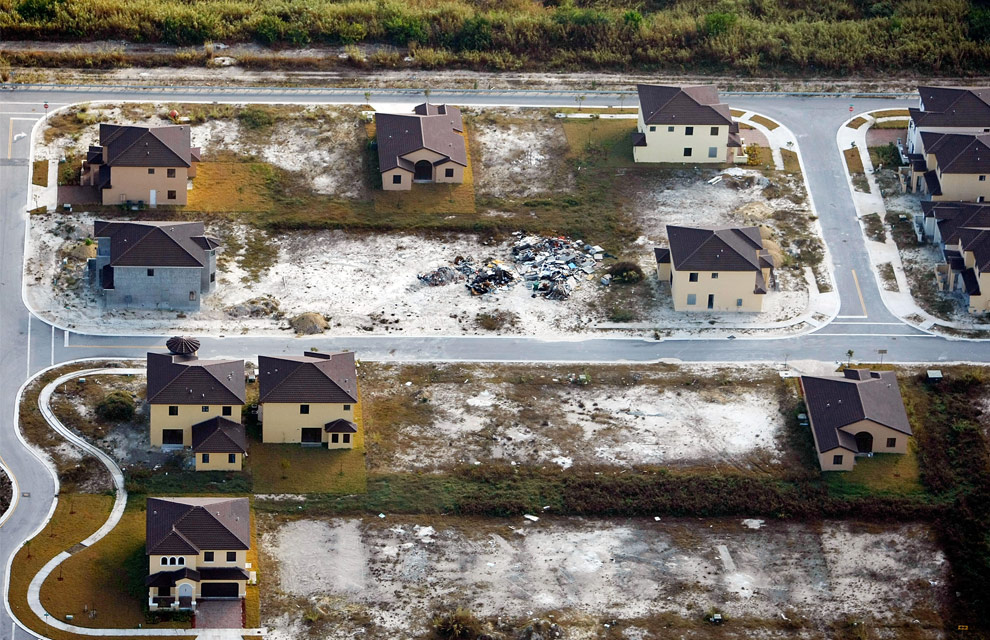
As new home sales and housing starts hit record lows, empty lots, partially constructed homes and abandoned ones are seen in a subdivision on January 30, 2009 near Homestead, Florida. Prices in November of 2008 declined 8.7 percent from a year earlier, the biggest drop in records going back to 1991, the Federal Housing Finance Agency reported. (Joe Raedle/Getty Images)
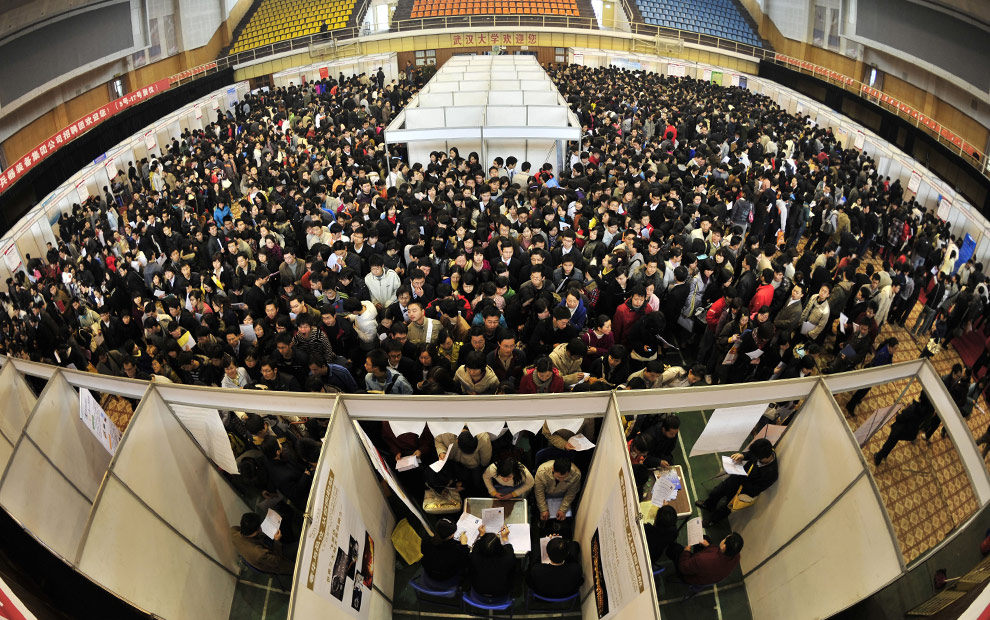
Thousands of unemployed Chinese graduates flock to a job fair in Wuhan, central China's Hubei province on March 7, 2009. China vowed to help train one million graduates in the next three years to boost their qualifications, and promised loans to business that hire graduates, as unemployment continues to grow. (STR/AFP/Getty Images)

Dodge SUVs sit parked in the Atlantic Marine Terminal at the port of Baltimore February 18, 2009 in Baltimore, Maryland. As the worldwide economic downturn persists and automobile sales continue to slow, more than 57,000 new automobiles sit idle in the port of Maryland. The state of Maryland recently paid $5.26 million for almost 15 acres of additional car storage space near the port, freeing space for more cargo. (Chip Somodevilla/Getty Images)
A general view shows a halted construction of a highway called "Lulin" near capital Sofia, bulgaria November 26, 2008. The highway is facing serious delay due to lack of funding, according to local media. (OLEG POPOV/Reuters)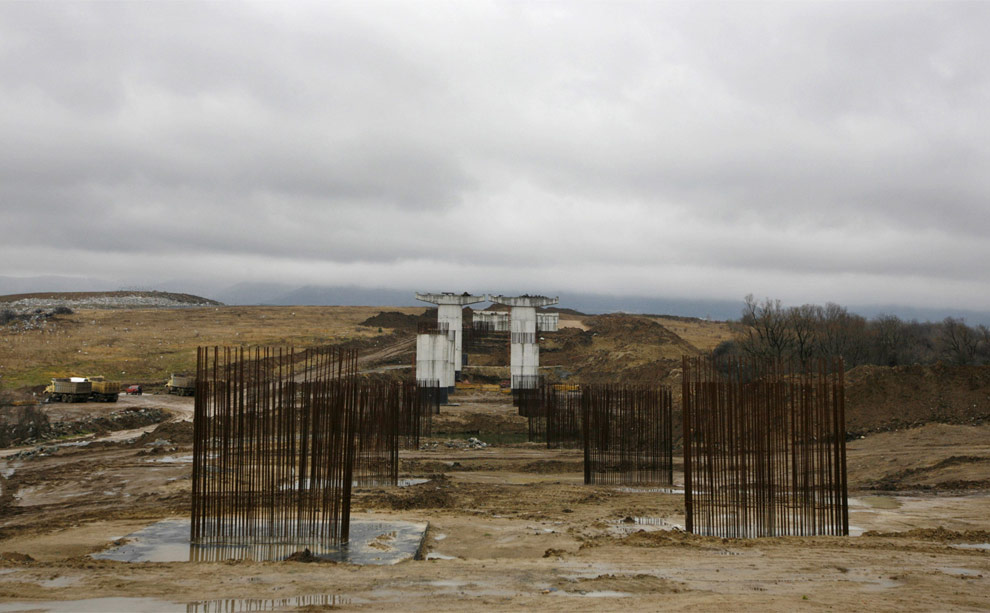
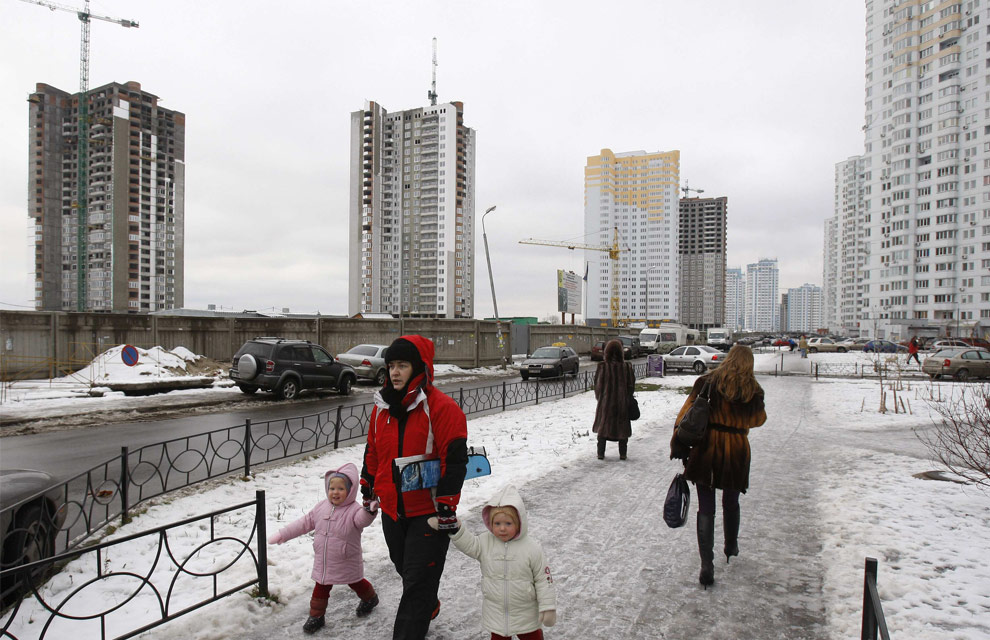
People walk in a residential district dotted with unfinished apartment buildings in Kiev December 24, 2008. Dozens of unfinished buildings populate the Kiev skyline, their abandoned hulks embodying the damage that the world's financial crisis has inflicted on Ukraine. (REUTERS/Gleb Garanich)
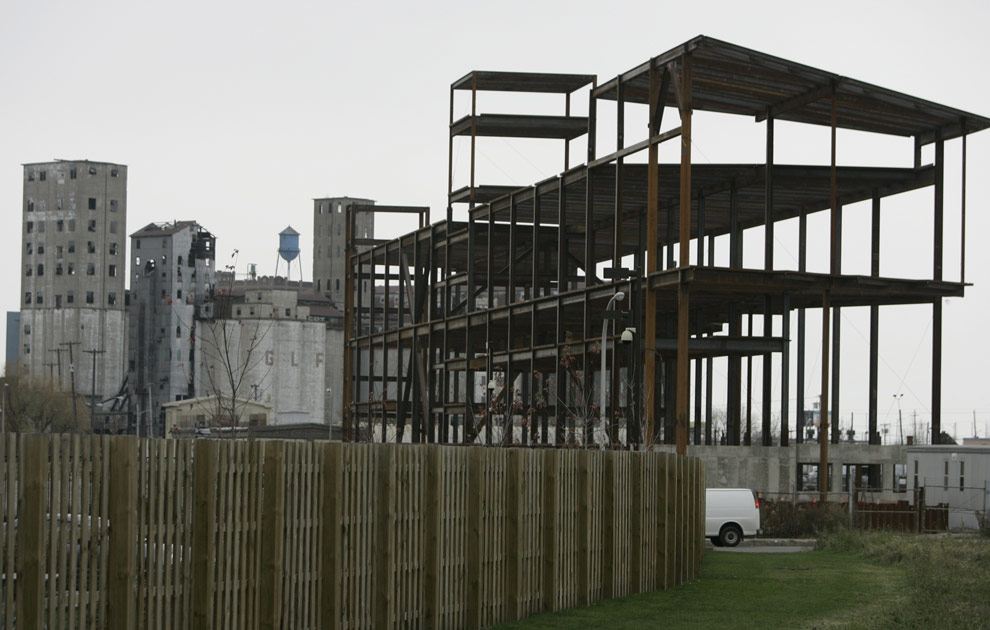
Construction is stopped on the Seneca Casino in Buffalo, N.Y., Monday, Nov. 24, 2008. With the state a signature away from collecting tax from tribal cigarette sales and a mega casino project mothballed because of economic and legal challenges, even by a former warrior nation's standards there are tough battles ahead. (AP Photo/David Duprey)
My fav:

Unused freight containers are seen piled up at storage depots near a residential area in northwest Hong Kong February 18, 2009. China's hopes for a speedy export recovery from the global crisis could be undermined by the weakest links in its powerful supply chain - smaller firms too damaged by the downturn and credit crisis to get goods to market. (REUTERS/Bobby Yip)
